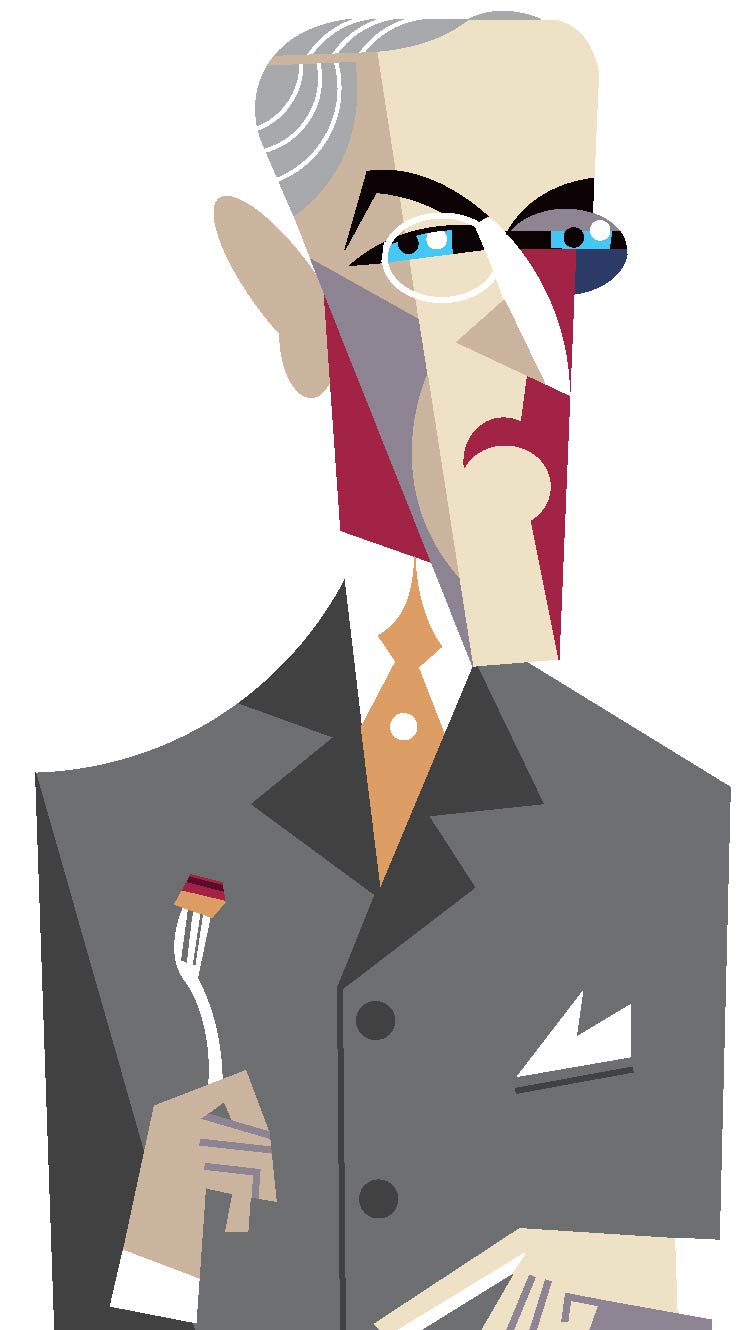You Don’t Say!
A collection of quotations from some of the University’s most celebrated figures, compiled by Fred R. Shapiro, author of The Yale Book of Quotations.

[Report in response to Japanese claims that most of the United States Third Fleet had been sunk or retired, Oct. 14, 1944]

The Third Fleet’s sunken and damaged ships have been salvaged and are retiring at high speed toward the enemy.
William F. “Bull” Halsey Jr., Quoted in Elmer B. Potter’s Bull Halsey (1985)
“Bull” Halsey studied medicine at the University of Virginia from 1899 to 1900, and returned to Charlottesville after World War II. During that war he commanded all forces in the South Pacific, then the Third Fleet, ultimately attaining the Navy’s highest rank, fleet admiral. This quotation embodies the aggressive and humorous style that made Halsey one of the most popular American military commanders.

Elaine R. Jones (2002)
Elaine R. Jones (Law ’70) was the first African-American woman to enroll in the UVA School of Law. She then became the first woman president of the NAACP Legal Defense and Edu-cation Fund. Growing up in Norfolk, Va., in the 1940s, Ms. Jones didn’t subscribe to the usual dreams of marriage and a traditionally female job. Instead, she wanted to be a lawyer.

Woodrow Wilson, Quoted in Josephus Daniels’ The Wilson Era; Years of War and After (1946)
Wilson, 28th president of the United States, attended UVA’s law school from 1879 to 1880. Although his tenure at the University was cut short by ill health, he was president of the Jefferson Literary and Debating Society and was active in the Virginia Glee Club. Like many great quotations, his “I am ready now” quip had precursors. Blaise Pascal wrote in 1657, “I have made this letter longer than usual, only because I have not had the time to make it shorter.” In an 1857 letter, Henry David Thoreau remarked, “Not that the story need be long, but it will take a long while to make it short.”

Edgar Allan Poe, Letter to publishers J. and H.G. Langley, July 1842
In 1826, Poe attended the University of Virginia, where he studied languages and excelled as both student and athlete but had to leave school because of unpaid gambling debts. Despite living in a young nation whose culture was much less developed than that of Europe, he became a globally influential pioneer of detective fiction, science fiction and the short story. Poe also produced such canonical poems as “The Raven” and “Annabel Lee,” as well as classics of literary criticism. Along with this letter to the Langleys (which was recently acquired by the UVA Library), Poe enclosed an article he hoped the publishers would buy, as he was “desperately pushed for money.” He blames friend, poet and lawyer William Ross Wallace for making him drink too many “juleps” and tries to make amends for his behavior. Poe closes the letter by hoping to see the publishers again “under better auspices.”

Robert F. Kennedy, Speech to National Union of South African Students, Cape Town, South Africa, June 6, 1966
Robert F. Kennedy (Law ’51) served as attorney general and U.S. senator from New York, and at the time of his assassination in 1968 may well have been on his way to winning the Democratic presidential nomination. Through the passage above, RFK popularized the expression “May you live in interesting times.” It clearly predated him, however. The Yale Book of Quotations cites an occurrence in the American Society of International Law Proceedings in 1939, noting that “no authentic Chinese saying to this effect has ever been found.” Early printed English-language versions do refer to it as an old Chinese curse.

Tina Fey, impersonating Alaska Gov. Sarah Palin on Saturday Night Live, Sept. 13, 2008
Tina Fey (Col ’92) majored in drama at UVA. Candidates for national office typically attract a single comedian who becomes the definitive impressionist of that candidate, and Fey clearly filled that role for Sarah Palin when the latter ran for vice president in 2008. Fey was so effective in parodying Palin that many pundits believe her depiction of the Alaskan governor as inexperienced and superficial was a significant factor in the outcome of the presidential election. The “see Russia” line, though not a real Palin quotation, was based on Palin’s assertion that the proximity of Alaska to Russia served as a foreign policy credential.

Thomas Jefferson, Letter to John Adams, April 8, 1816
The epitaph on Jefferson’s gravestone does not mention that he was the third president of the United States, stating instead: “Here was buried Thomas Jefferson author of the Declaration of American Independence of the Statute of Virginia for Religious Freedom and father of the University of Virginia.” The statement “I am an old man and have known a great many troubles, but most of them never happened” is frequently attributed to Mark Twain, but Jefferson’s quotation was written well before Twain’s birth.

Raleigh C. Minor, A Republic of Nations: A Study of the Organization of a Federal League of Nations (1918)
Raleigh C. Minor (Col 1887, Grad 1888, Law 1890) was a faculty member at the University from 1893 to 1921 and was one of the founders of the field of conflict of laws in the United States. In his 1918 book cited above, Minor used the term “United Nations” for a federal league of nations proposed by him, 24 years earlier than the generally accepted coinage of the term attributed to Franklin D. Roosevelt.